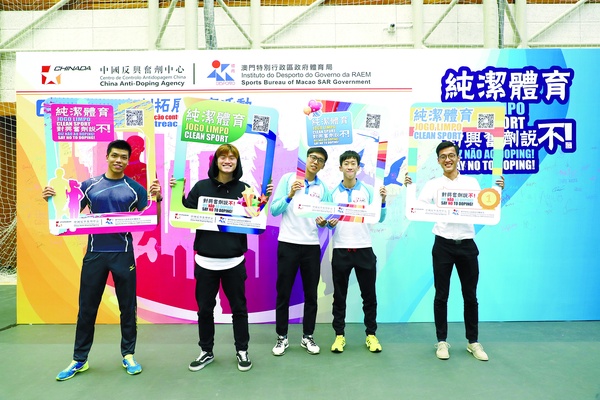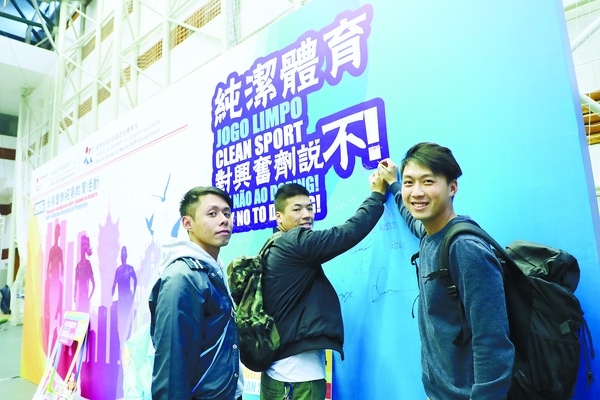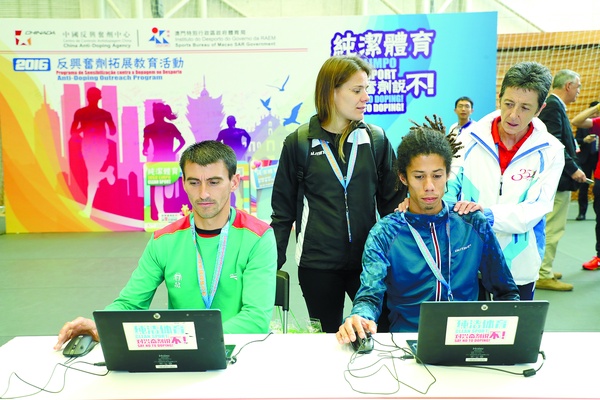Doping in sports refers to prohibited substances and prohibited methods prescribed by international sports organizations for use in the absence of medical needs. With the continued development of anti-doping work in sports, athletic doping tests are conducted in various sports events around the world to prevent athletes from gaining competitive advantage by using stimulants.
In order to deepen the understanding of the athletes and the public in Macau towards the anti-doping work and to enable the athletes to understand their obligations and responsibilities in sports, the Sports Bureau and China Anti-Doping Agency (CHINADA) of the General Administration of Sports of China jointly organized an "Anti-Doping Extensive Education Program" in a succession of two days on December 2nd and 3rd at the Olympic Sports Centre - Stadium to promote anti-doping knowledge and ideas, with 6,027 participants attending the activity.
The activities mentioned above aimed at disseminating and popularizing anti-doping knowledge among the general public through computer and quiz games in the form of a combination of education and entertainments. The doping control procedures were also displayed at the scene to enable athletes to know the doping control process and the operating procedures. Three experts, namely, Lin Haiyan, Director of the General Administration Department, Sai Fei, Director of the Education and Prevention Department, and Deng Jing, Associate Research Fellow of China Anti-Doping Agency, were invited by the organizers to interact with the athletes and other participants at the scene, explaining to the public the hazards of doping. The participants could play games while exchanging ideas in discussions with the experts.
During the event, Rosa Mota, who was invited to Macau as a special guest of the Macao International Marathon Event, also attended the activity. The athlete, who won several Olympic and other world and European marathon gold medals, shared her experiences with the participants and explained to them the importance of anti-doping work to the career of an athlete, especially, to the health, personal integrity and sports ethics.
The organizers hoped that, through participation in such activities, the general public could understand the hazards of doping on health and improve the awareness of athletes to guard against accidental doping in the treatments of injuries and in daily life to protect the athletes' physical and mental health as well as their fair and equitable sports spirit. "Pure sport Say no to doping!"





